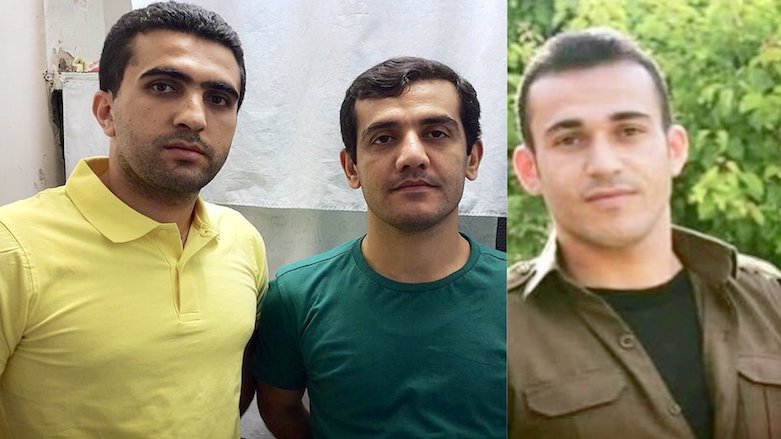Amnesty International strongly condemns Iran's execution of three Kurds

ERBIL (Kurdistan 24) – Amnesty International on Saturday condemned the execution of Iranian Kurdish prisoners Zaniar and Loghman Moradi, and Ramin Hossein Panahi.
All three were executed earlier in the day in the Raja’i Shahr prison, Karaj, despite calls from human rights organizations to halt their death sentences.
Philip Luther, Amnesty International’s Research and Advocacy Director for the Middle East and North Africa, said the human rights organization was “horrified” by the news of the executions.
“The trials of all three men were grossly unfair. All were denied access to their lawyers and families after their arrest, and all said they were tortured into making ‘confessions,’” he added.
According to Luther, the executions demonstrate Iran’s “brazen disregard for the right to life.”
The Amnesty official called on the international community to strongly condemn the killings and urged the Iranian authorities to respect their obligations under international law.
“The Iranian authorities must take steps to ensure that everyone has a fair trial, that torture and other ill-treatment are absolutely prohibited, and that the practice of forced ‘confessions’ is stopped once and for all,” he added.
“They must also immediately impose an official moratorium on executions with a view to abolishing the death penalty.”
UN official Agnès Callamard, the OCHR’s Special Rapporteur on Extrajudicial Killings, also strongly condemned the executions on her Twitter account: “No words of condemnation will be strong enough.”
“Ramin Hossein Panahi’s execution amounts to an arbitrary killing by the State of Iran. Given the identity of the victim, this is also a political killing. Despicable,” she said.
“This execution was unlawful. It is also unjust. Shameful,” Callamard concluded.
The executions took place on the same day Iran hit Iranian Kurdish opposition groups with missiles in the Kurdistan Region city of Koya.
The Iranian attack caused dozens of casualties inside the two parties’ buildings, located near each other. Hospital sources in Koya told Kurdistan 24 that at least 14 died and 42 more were wounded. Many among them were civilians.
“Attacks by [the Revolutionary Guard] on a refugee camp and the headquarters of the KDP-I and PDK-I in Koya is an act of terror and a violation of Kurdistan’s territorial integrity,” Mahmoud Othman, an independent Kurdish politician, said.
“It coincides with the execution of three Kurdish activists as the Iranian government continues state terror against the Kurds.”
Photos online showed women and children from refugee camps that were attacked by Iran with ballistic missiles seeking shelter in the mountains of Kurdistan.
The Kurdistan Regional Government, the Kurdistan Democratic Party (KDP) President, Masoud Barzani, the Patriotic Unionof Kurdistan (PUK), and other opposition parties condemned the Iranian attack.
In recent years, Iran has repeatedly shelled areas of the Kurdistan Region along its borders, claiming to target Iranian Kurdish opposition groups who have resumed their armed struggle after decades of a ceasefire.
Kurdish journalist Fazel Hawramy reported on Saturday evening that Iran had resumed shelling of the Halgurd area near Soran town in Erbil province where the PDK-I has Peshmerga fighters stationed.
Moreover, he said the Revolutionary Guard deployed a significant number of troops in cities such as Kamyaran, Mariwan, Piranshahr, and other areas.
Editing by Karzan Sulaivany
